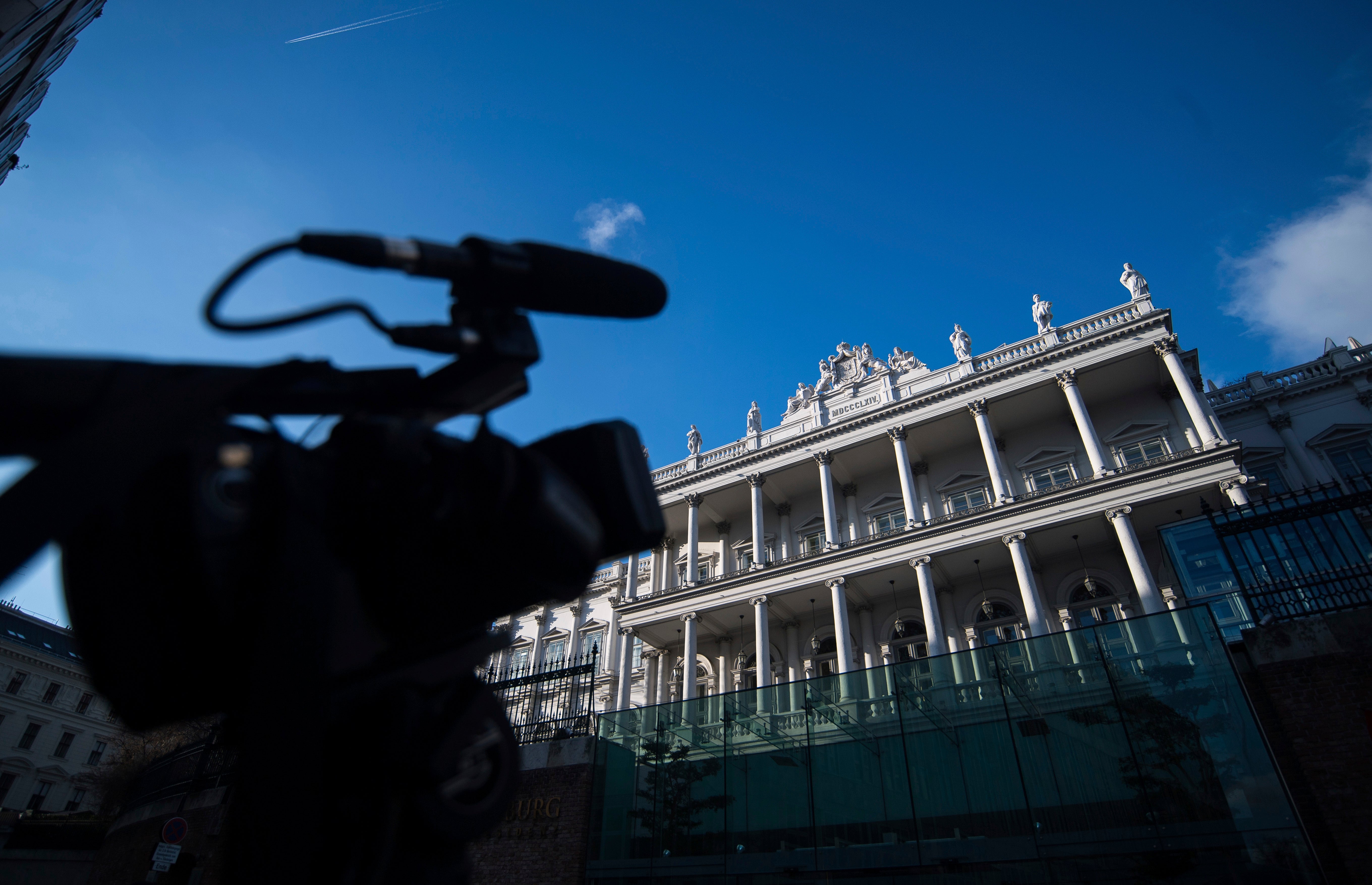Iraqi FM calls for direct Iran-US talks on nuclear deal
Iranian media say Iraq’s foreign minister has called for direct negotiations between Iran and the United States

Iraq s foreign minister on Thursday called for direct negotiations between Iran and the United States, Iranian media reported, a rare appeal just days before world powers are set to resume talks over the tattered nuclear accord in Vienna
Fuad Hussein spoke at a news conference after meeting his Iranian counterpart in Tehran stressing that heightened tension between Iran and the U.S. — Baghdad's two powerful allies — directly affects his country's stability.
While Iraq remains a pillar of Washington's security policy in the region, Iranian-backed militias wield extensive power in the country.
“Any opening in Tehran-Washington relations will positively impact Iraq’s internal situation from political, economic and security perspectives,” Hussein said.
"We think it's time for direct talks between Tehran and Washington so that the two countries reach a common understanding not only on the nuclear issue but also on sanctions imposed on Iran,” he said.
Tehran's 2015 atomic deal with world powers granted Iran sanctions relief in exchange for curbs on its nuclear program. Three years ago, America under then-President Donald Trump withdrew from the accord. In response, Iran has stepped up its nuclear program and is now spinning a stock of uranium enriched to 60% purity — a short technical step from weapons-grade levels.
Tehran has struck a hard line in negotiations since conservative President Ebrahim Raisi came into office. Consternation is building among European nations at the negotiating table in the Austrian capital. The parties to the landmark deal will resume their efforts on Monday, the European Union said.
Iran has refused to speak directly to American officials in the rounds of talks since the U.S. abandoned the accord.
Hussein also touched on the hasty evacuation and sudden death of Iran's top diplomat in war-torn Yemen, Hassan Irloo, whom Washington has identified as a member of Iran's powerful paramilitary Revolutionary Guard. He said the U.S. cooperated with Saudi Arabia and Iran to transfer Irloo on an Iraqi plane from Yemen to Tehran, where Iranian authorities said he died of COVID-19.
There was no immediate comment from Washington on its reported assistance. Yemen's Houthi rebels had sought permission for his transfer from Saudi Arabia, which maintains an air blockade on Yemen's capital of Sanaa.
Speaking alongside Hussein, Iran's Foreign Minister Hossein Amirabdollahian repeated calls for the U.S. to lift sanctions before Iran walks back its nuclear advances.
“We say it out loud that if you want your concerns over Iran’s peaceful nuclear issue to be removed, then all of the nuclear deal-related sanctions must be removed,” he said, addressing the West.
Amirabdollahian also noted that Baghdad-brokered talks between Iran and its long-time Sunni rival Saudi Arabia have continued.
“We will attend the upcoming round of talks (with Saudi Arabia) in Baghdad,” he said, thanking Hussein and Iraq's prime minister for their “support.”
He said that three Iranian diplomats had been granted visas to be stationed in the Saudi city of Jiddah at the 57-member Organization of Islamic Cooperation, a body of Muslim nations. Saudi authorities did not immediately respond to a request for comment on the matter.
Saudi Arabia severed its diplomatic ties with Iran in 2016 after protesters attacked the Sunni kingdom's embassy in Tehran in response to its execution of a prominent Shiite cleric. The powerhouses support opposite sides of Yemen's spiraling conflict and remain at war for influence across the region.
Baghdad has played a visible role in trying to cool tensions between the rivals.
Bookmark popover
Removed from bookmarks